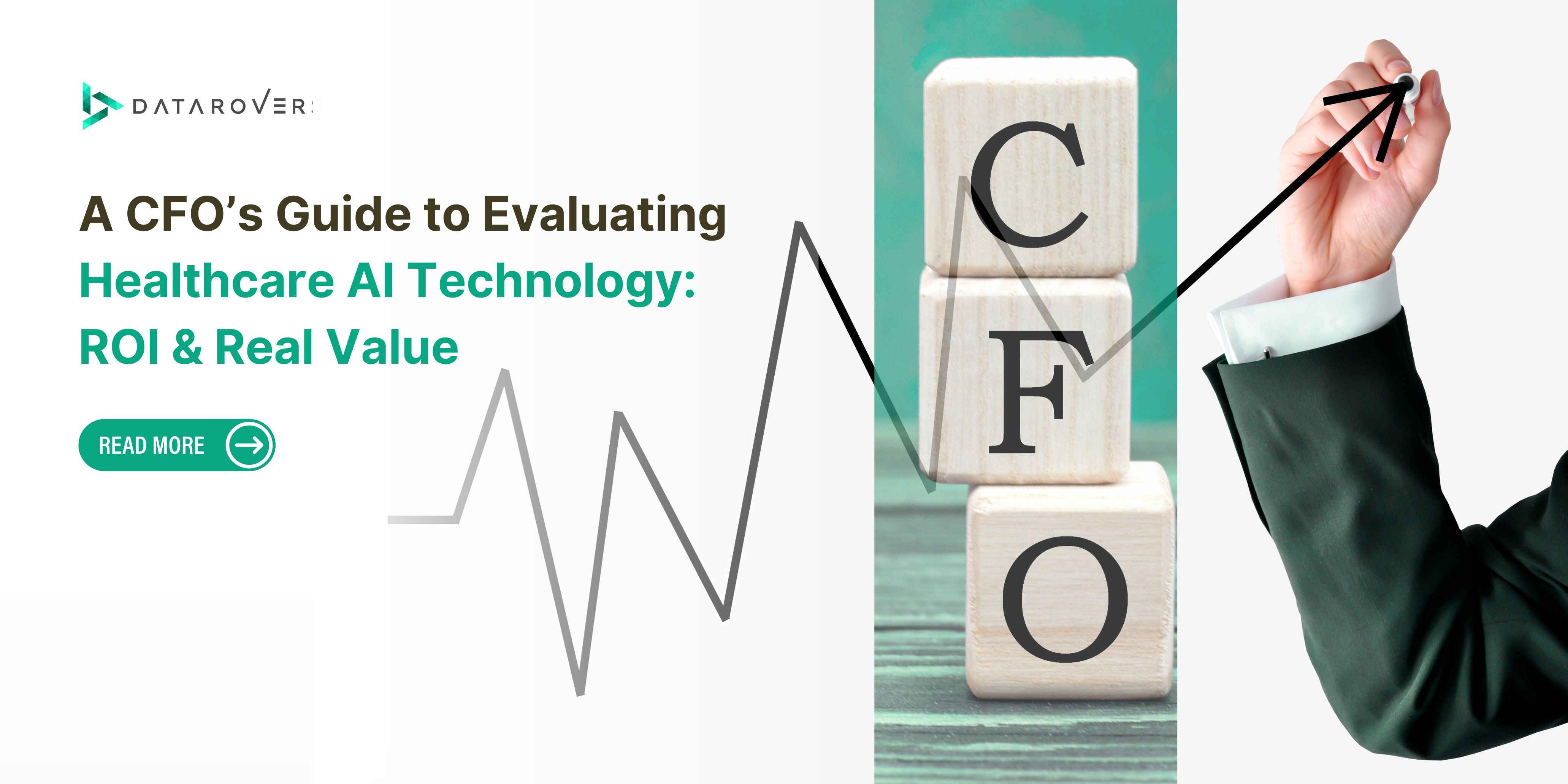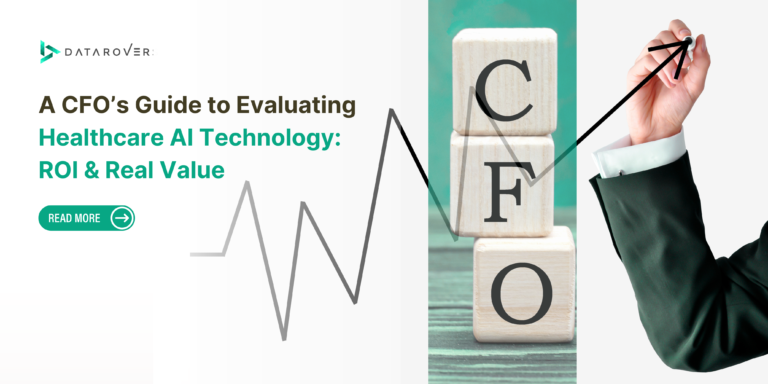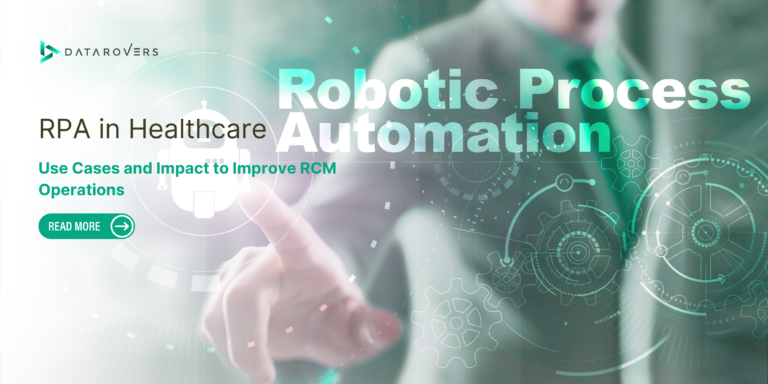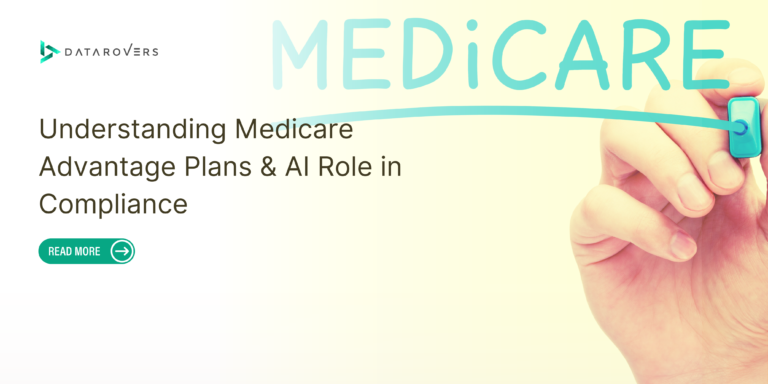In 2025, AI will be not just a tool but a strategic imperative for healthcare CFOS. AI technologies in healthcare surpass traditional revenue cycle management by delivering measurable ROI and tangible value.
This CFO-specific guide explains how to evaluate healthcare AI to deliver financial returns and lasting value.
Evaluating Health Care AI Solutions: CFOs Action Plan
Artificial Intelligence includes different strategies such as machine learning, natural language processing, and data analytics. These strategies assist in optimizing healthcare workflows, resource allocation, and administrative tasks.
For a CFO it is essential to divide the use of AI applications into two main categories:
- Clinical AI: Implemented to elevate treatment planning, diagnosis and
- Operational AI: Implemented to elevate healthcare workflows such as billing, scheduling, and resource allocation.
Return on investment of AI in healthcare
The return on investment of AI in healthcare is one of the top priority operational AI which the CFO should emphasize. There are numerous approaches to evaluate AI solutions to improve the ROI.
Here are a few of these approaches:
- ROI Models: Implement healthcare ROI models like Quality-Adjusted Life Years (QALY) and Patient-Reported Outcome Measures (PROMs) for better results.
- Setting better goals: Establish clear key performance indicators for improved outcomes such as accuracy in medical examination and reducing unnecessary administrative costs.
- Analysis of complete budget: Observing the direct and indirect budget of the health system/organization
⭐Pro Tip: To evaluate the ROI have clear measurable ROI metrics, this can be measured through the following ROI formula:
ROI (%) = [(Net Benefits – TCO) / TCO] x 100
CFO AI Strategy In Healthcare
Here is a short road a CFO needs to follow to carefully adopt the AI technologies to evaluate the ROI and for better stability.
Key Considerations for Evaluating Healthcare AI Solutions
CFO should strategically observe and implement appropriate AI technology for improved financial results and long-term value. From setting the AI investments balanced with the financial needs to carefully implementing the strategy, all points need to be observed by the CFO.
Here is a table below of a few key considerations for the CFO to evaluate healthcare AI solutions.
| Key Consideration | Goal |
| Scalability | Attain long-term organizational benefit. |
| Integration | Integration of tools that have faster implementation and better user experience. |
| Support | Better technical and vendor support. |
| Security | Data is carefully protected. |
The Final Verdict
In a nutshell, if CFOs adopt the right AI technology, they can overcome different categories of systematic problems, like administrative minor issues, documentation issues, staffing problems and revenue gaps with automation tools.
It is essential for CFOs to use the appropriate healthcare AI technology. This would assist their organization in exceeding their financial stability and reaching better rewards in the healthcare industry.
Discover how DataRovers can improve your healthcare operations with AI solutions.
FAQs
1. What essential points shall a CFO focus on when evaluating AI solutions?
CFO should mainly focus on ROI driven outcomes like better revenue, operational benefit, better vendor support, and data security.
2. Is AI in healthcare just a tool or a long-term strategy?
AI in healthcare is more than a automation tool as it is a long term investment which provides beneficial results in finance and stability.
3. Do AI providers protect the data?
Yes, AI providers like DataRovers, fully provide data protection as they abide by the HIPAA guidelines to ensure data security.




